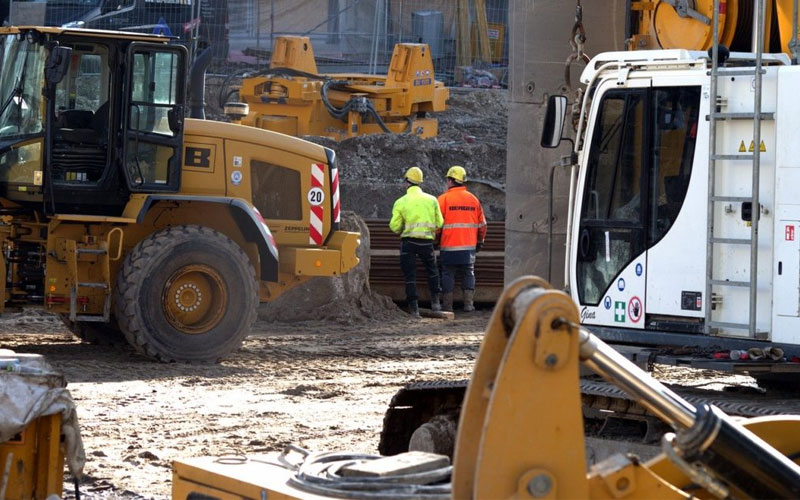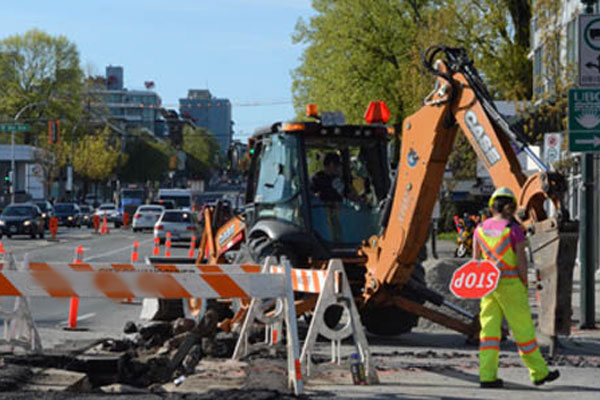
Traffic control plans are necessary to keep road work safe for drivers and construction workers. These plans will guide traffic away from construction zones, reduce the risk of caught-in-between or backover accidents, and provide visibility to prevent vehicles from crashing into construction sites.
An effective plan will also improve efficiency and limit delays. This article will cover the top five reasons to implement a traffic control plan for your next civil engineering project.
Safety
A traffic control plan allows for proper monitoring of safety-related issues that can arise during construction. This is done by identifying potential risk areas, implementing a plan to address those risks, and ensuring that the plan is followed throughout the project. This can include setting up detours, lane closures, printed corflute signs indicating construction vehicle routes, and clear and easy-to-read barricades. It may also involve using an automated flagger assistance device (AFAD) to patrol the work zone and signal that drivers are safe to enter.
Thorough traffic management minimizes disruptions and ensures that projects are completed on time and within budget. It can also help to maintain a good reputation and relationships with local communities. In addition, it can reduce medical expenses and legal fees related to accidents and delays. It can also lower insurance premiums and increase profitability. It is recommended that every construction project have a thorough traffic management plan.
Traffic flow
Traffic flow is a critical factor in the success of construction projects. A well-designed plan minimizes disruptions to road users and helps the project stay on schedule and within budget.
During the traffic control plan reviewing process, experienced professionals evaluate the layout and placement of signage, detour routes, lane closures, and pedestrian accommodations. They also examine the system’s overall effectiveness in addressing the unique requirements of a given work zone.
Efficient traffic management systems are essential for shaping our cities and improving the efficiency of urban transportation. They enable construction companies to minimize traffic disruptions, which reduces travel times for commuters and delivery vehicles. Additionally, they help reduce fuel consumption and emissions.
Traffic flow planning involves identifying and managing bottlenecks, whether caused by an unavoidable accident or intentional interruption to traffic flow. Proper planning minimizes traffic delays and improves road user satisfaction. It also keeps construction workers, vehicles, and equipment safe.
Efficiency

When a construction site has a proper Traffic Control Plan in place, it will ensure the safety of both vehicles and pedestrians. It also minimizes disruption to the surrounding community, allowing operations to run as smoothly as possible.
Thorough risk assessments, including traffic patterns and identifying areas of concern, are necessary to establish effective traffic management strategies. Portable changeable message signs can communicate lane closures, road diversions, and speed limits in work zones, making driving around construction sites safer.
A correctly implemented traffic control plan will help keep projects on schedule, minimizing the need for costly repairs, legal disputes, or delays due to regulatory issues. Efficient traffic management can also reduce the time spent on site, resulting in cost savings and increased project efficiency.
Costs
In the case of urban construction projects, traffic control plans are critical for minimizing disruptions to traffic flow and reducing congestion. This leads to less impact on commuters, faster project completion times, and reduced costs for contractors.
It’s also important to consider the needs of emergency vehicles when developing a traffic management plan. This includes ensuring fire trucks and ambulances can access the site without causing delays. It’s possible to minimize these impacts with the strategic use of printed corflute signs, traffic controllers, and alternative routes for emergency vehicles.
Traffic management plans can also help reduce costs by minimizing accidents and delays. This saves on repair expenses, legal fees, project timeline extensions, and lost productivity. Construction companies must invest time and effort into optimizing their traffic management systems, resulting in better safety, efficiency, and a more successful project.







